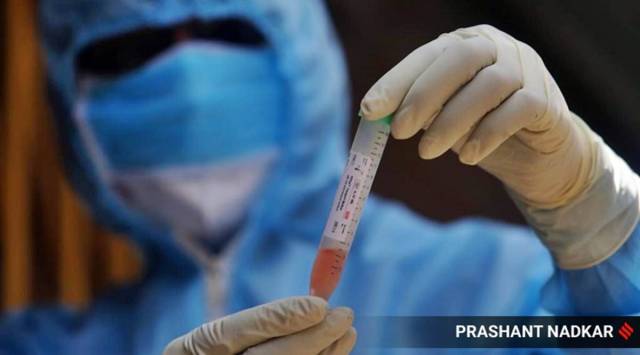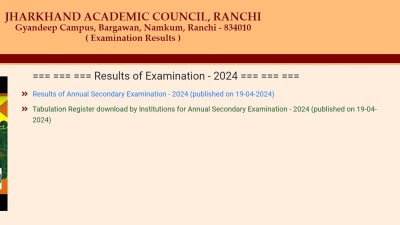- India
- International
Over 85% Mumbai population has Covid-19 antibodies: Latest BMC sero survey
The latest survey, which covered 8,674 people, found a sero positivity rate of 87.02 per cent in slums, and 86.22 per cent in non-slum areas.
 This is the first time that there is a meagre difference in the sero positivity of the slum and non-slum population in the city. (Representational/Express photo by Prashant Nadkar)
This is the first time that there is a meagre difference in the sero positivity of the slum and non-slum population in the city. (Representational/Express photo by Prashant Nadkar)The fifth sero survey conducted by the Brihanmumbai Municipal Corporation (BMC) in Mumbai in August 2021 shows that 86.64 per cent of the 8,674 people surveyed have antibodies against Covid-19. This is significantly higher than the third sero-surveillance conducted in March this year, which found 36.3 per cent of those surveyed had antibodies against Covid-19.
The latest survey, which covered 8,674 people, found a sero positivity rate of 87.02 per cent in slums, and 86.22 per cent in non-slum areas. This is the first time that there is a meagre difference in the sero positivity of the slum and non-slum population in the city.
The last sero survey, conducted in March this year, had found a sero positivity of 41.6 per cent in slums and 28.5 per cent in non-slum areas. “Overall, the sero-prevalence in slum and non-slum areas in the city of Greater Mumbai is much higher as compared to the last serosurvey,” stated the civic body in its statement.
BMC has conducted three sero-surveillance studies for Covid-19 and one sero-surveillance study for the paediatric population previously. The latest sero-surveillance was conducted between August 12 and September 8 this year.
This sero-surveillance also included the vaccinated population. The BMC had expected antibodies per centre to rise in this survey owing to the mass immunisation programme. The survey found sero-prevalence amongst partially and fully vaccinated participants is 90.26 per cent, while sero-prevalence amongst those who have not taken Covid-19 vaccine is 79.86 per cent.

“The results are in line with what we had expected. We also wanted to include the vaccinated population in the survey,” the deputy executive health officer in BMC, Dr Daksha Shah said. “The sero prevalence is at 86.64 per cent, it does not indicate protective levels of IgG antibodies. As we know, the antibodies level starts declining after a month of the infection. Therefore, the citizens mustn’t be complacent and we recommended them to continue to strictly follow the ‘Covid-Appropriate Behaviour.”
“Sero-prevalence was significantly higher in study subjects who received either first or both doses of COVID-19 vaccine as compared to their unvaccinated counterparts. it is essential to strengthening the ongoing COVID-19 vaccination program.” stated the civic body in a statement released on Friday.
The rise in antibodies in the non-slum population in this survey is indicative of recent infection trends. In the first wave, slums were worst affected. However, in the second wave, the data by the BMC had shown that out of 87,000 active cases in April this year, 90 per cent were concentrated in high rise buildings while slums account for just 10 per cent.
In July 2020, the results of the first serosurvey showed seroprevalence stood at 16 per cent in non-slums. In August, a second survey, however, showed that sero prevalence rose marginally to 18 per cent for non-slums. In March this year, seroprevalence in non-slum areas was 28.5 per cent.
Antibodies are formed within a week to three weeks of infection, but their levels start declining after a few months of the infection. The first sero survey last July showed 57 per cent population in slums had antibodies. This reduced to 45 per cent in the second survey in August 2020, and 41.6 per cent this March.
The survey was conducted by the BMC health department, The Lokmanya Tilak Municipal General Hospital and Medical College, Sion Hospital with support from A.T.E. Chandra Foundation and IDFC Institute.
BMC stated that the study was cross-sectional and included participants above 18 years of age, from all 24 wards of the city. Study participants were selected by systematic random sampling and those visiting municipal dispensaries and general practitioners’ clinics in slum and non-slum areas respectively.
Out of the total samples, 20 per cent were health care workers. Sero-prevalence in health care workers is 87.14 per cent. The marginal difference was found in the gender-wise sero-prevalence with females showing 88.29 per cent sero-prevalence as compared to males at 85.07 per cent.
Civic officials said based on the survey, they plan to accelerate vaccination programmes to increase antibody levels in the population.
Apr 19: Latest News
- 01
- 02
- 03
- 04
- 05






































